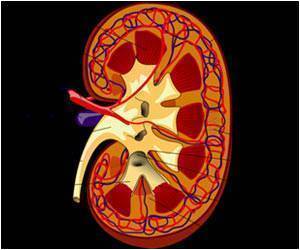Compared to white Americans, genetic factors in African Americans with chronic kidney disease (CKD) put them at a greater risk for end-stage renal disease (ESRD).

Both studies identified high risk genetic variants in the APOL1 gene that speed up kidney disease progression and substantially increase the risk of developing kidney failure, compared to whites and blacks with low risk variants, with or without diabetes. Approximately 1 in 10 blacks possess the high risk variants, though it is very uncommon in whites.
"Even though our studies found that African Americans with two copies of the high-risk APOL1 variants were at higher risk for kidney disease progression, about 40% of the African Americans from the AASK study who also carried the high-risk variants had not progressed at the time of the study," said co-lead author W.H. Linda Kao, PhD, MHS, professor of epidemiology and medicine at Johns Hopkins University. "This finding highlights the importance of identifying factors that may modify the effect of the APOL1 risk variants."
Senior author Lawrence J. Appel, MD, MPH, professor of medicine, epidemiology, and international health at the Johns Hopkins Medical Institutions, noted the importance of the APOL1 gene and its effect on kidney disease progression in blacks.
"Blacks with chronic kidney disease and the high-risk genetic variants were more likely to have kidney disease that progressed, compared to both blacks without the high-risk genotype and whites," he said.
Appel also stated that African Americans with low-risk variants still had a higher risk of developing kidney failure than whites.
Source-Eurekalert
 MEDINDIA
MEDINDIA




 Email
Email










